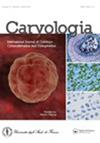用染色体畸变测定合成植物生长调节剂氟虫腈(CPPU)对人淋巴细胞的遗传毒性
IF 2.1
4区 生物学
Q2 Agricultural and Biological Sciences
引用次数: 0
摘要
氯虫腈(chlorofenuron, FCF,又称CPPU)属于苯脲类细胞分裂素(phenylurea cytokinins),是世界上应用最广泛的合成植物生长调节剂(pgr)之一。尽管FCF通过促进植物细胞分裂在细胞生长和分化中起着至关重要的作用,但在包括人类在内的其他真核生物中,它会破坏高阶septin的组装。尽管它被广泛使用,但没有研究发现这种合成的PGR对人类的遗传毒性作用。因此,本研究旨在通过染色体畸变(CAs)和有丝分裂指数(MI)终点来检测FCF商业配方对人外周血淋巴细胞(pbl)的潜在细胞遗传毒性。全血培养分别用0.25、0.50、1.00和2.00µg/ml浓度的商业形式的FCF处理。结果显示,与阴性对照相比,FCF在浓度为1.00µg/ml和2.00µg/ml的处理时间(24和48 h)均显著提高了含有结构CAs的细胞百分比(P<0.05)。此外,在FCF浓度为0.50、1.00和2.00µg/ml的培养中,总CA/细胞比显著升高(P<0.05)。此外,与阴性对照相比,FCF在所有处理下(24 h最低浓度除外)都具有细胞毒活性,显著降低了MI (P<0.05)。本研究结果首次表明,FCF的商业配方(0.50-2.00µg/ml)可能对人类淋巴细胞具有遗传毒性和细胞毒性。本文章由计算机程序翻译,如有差异,请以英文原文为准。
Genotoxicity of a synthetic plant growth regulator, Forchlorfenuron (CPPU), on human lymphocytes using chromosome aberration assay
Forchlorfenuron (FCF, also known as CPPU), which belongs to the group of phenylurea cytokinins, is one of the most widely used synthetic plant growth regulators (PGRs) worldwide. Although FCF plays a crucial role in cellular growth and differentiation by promoting cell division in plants, it disrupts higher-order septin assembly in other eukaryotic organisms, including humans. Despite its widespread use, no study has been found investigating the genotoxic effects of this synthetic PGR on humans. Hence, this investigation was designed to examine the potential cyto-genotoxicity of a commercial formulation of FCF on human peripheral blood lymphocytes (PBLs) using chromosome aberrations (CAs) and mitotic index (MI) endpoints. The whole blood cultures were treated with 0.25, 0.50, 1.00, and 2.00 µg/ml concentrations of a commercial form of FCF. According to the results, FCF significantly enhanced the percentage of cells containing structural CAs at the concentrations of 1.00 and 2.00 µg/ml for both treatment times (24 and 48 h), in comparison to the negative control (P<0.05). Besides, in cultures exposed to FCF concentrations of 0.50, 1.00, and 2.00 µg/ml, the total CA/cell ratio was significantly higher (P<0.05). In addition, FCF was found to have cytotoxic activity on human PBLs at all treatments (except for the lowest concentration at 24 h) by significantly reducing the MI compared to the negative control (P<0.05). The findings of this investigation indicate the first time that a commercial formulation of FCF (0.50-2.00 µg/ml) may have genotoxic and cytotoxic potential on human lymphocytes.
求助全文
通过发布文献求助,成功后即可免费获取论文全文。
去求助
来源期刊

Caryologia
生物-遗传学
CiteScore
1.60
自引率
23.80%
发文量
26
审稿时长
12 months
期刊介绍:
Caryologia is devoted to the publication of original papers, and occasionally of reviews, about plant, animal and human karyological, cytological, cytogenetic, embryological and ultrastructural studies. Articles about the structure, the organization and the biological events relating to DNA and chromatin organization in eukaryotic cells are considered. Caryologia has a strong tradition in plant and animal cytosystematics and in cytotoxicology. Bioinformatics articles may be considered, but only if they have an emphasis on the relationship between the nucleus and cytoplasm and/or the structural organization of the eukaryotic cell.
 求助内容:
求助内容: 应助结果提醒方式:
应助结果提醒方式:


